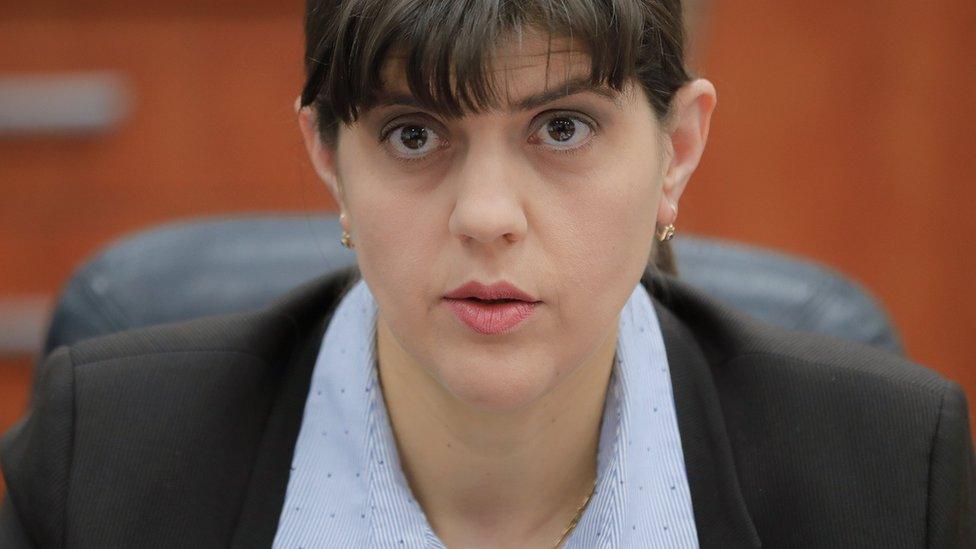Corruption fighter tipped as Europe's first prosecutor
- Published
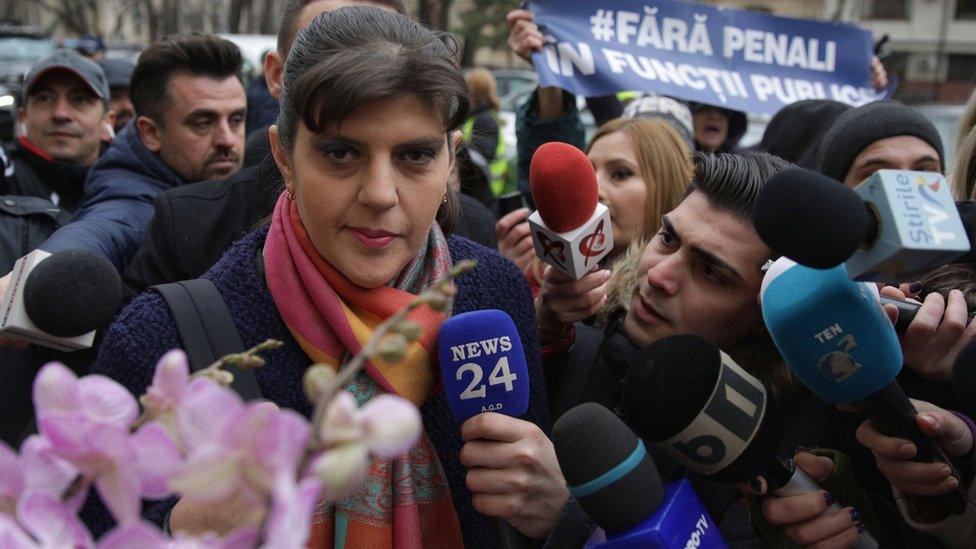
Ms Kovesi was sacked months after the justice minister called for her dismissal saying she had exceeded her authority
The European Union has never had a chief prosecutor, and now the front-runner to become the first is a woman who has built a fearsome reputation at home.
Until last year Laura Codruta Kovesi, 45, was head of Romania's powerful Anti-Corruption Directorate (DNA).
She is up against an attorney general from France, Jean-François Bohnert – and facing fierce opposition from her own government.
As head of the new European Public Prosecutor's Office (EPPO), whoever wins will have extensive powers to investigate and prosecute the misuse of EU funds and VAT fraud between EU member states.
How Kovesi became her government's deadly enemy
A talented basketball player in her youth, Laura Kovesi became a general prosecutor at just 36. By 2013 she was head of the DNA – and built up quite a track record.
During her five years in the job she put 68 high-level functionaries on trial, including 14 government ministers or ex-ministers and 53 deputies from both houses of the Romanian parliament.
By the time she was forced out of the job by the governing Social Democrats, 37 of those politicians had already been convicted, and most of the other cases were still ongoing.
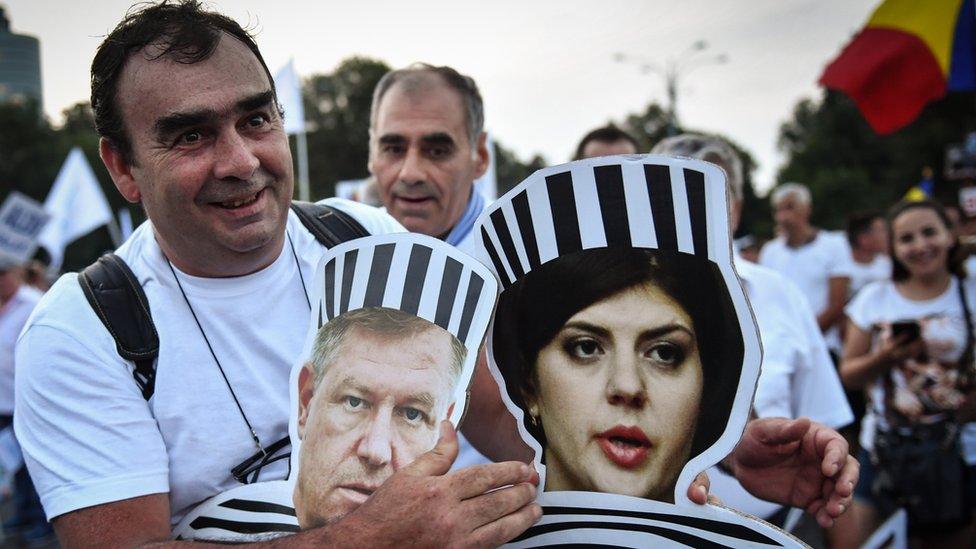
Supporters joined rallies organised by the ruling Social Democrats last summer calling for Ms Kovesi to go to jail
Romania's governing Social Democrats consider her their mortal enemy, even though public officials from all parties were prosecuted.
Eventually, after a long battle, the government forced the president to fire her last July.
She stood accused of abusing her office and over-use of wire-tapping facilities from the secret services; her district prosecutors were accused of pressuring witnesses.
A fraud probe was launched against her, which she dismissed as part of a smear campaign.
Romanians take to the streets
"Romanians' trust in the DNA is quite remarkable," she told me in February 2017, as hundreds of thousands of Romanians came on to the streets to protest against government efforts to soften anti-corruption legislation.
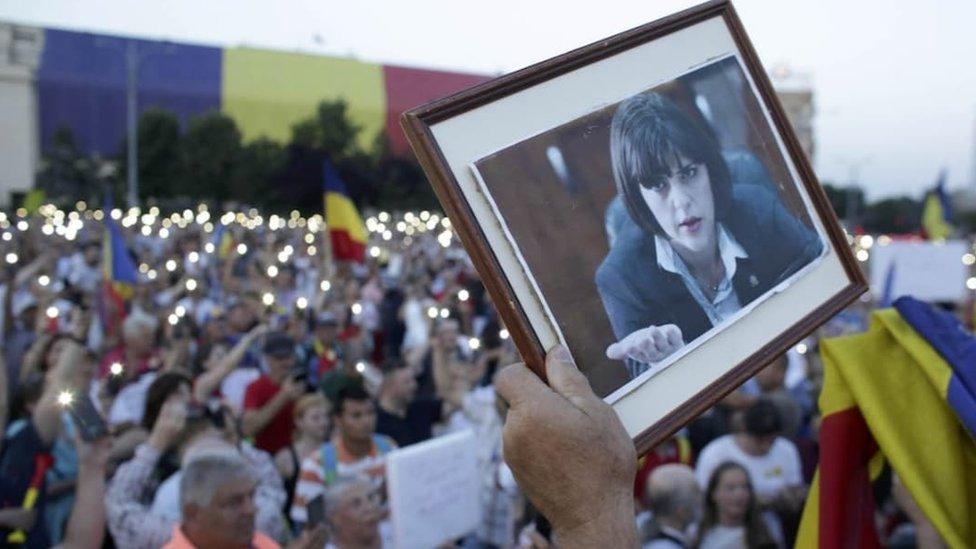
Big crowds turned out in 2017 in support of the anti-corruption chief
"More and more people were willing to give witness statements regarding corruption cases. And all that because Romanian citizens noticed that the law is equal for everybody.
"This is what we do. So we will continue doing our job, regardless if we are supported or not."
Protesters carried banners supporting the DNA, and bearing Ms Kovesi's picture.
Last week, supporters gathered at Bucharest to welcome her back from Brussels with flowers.
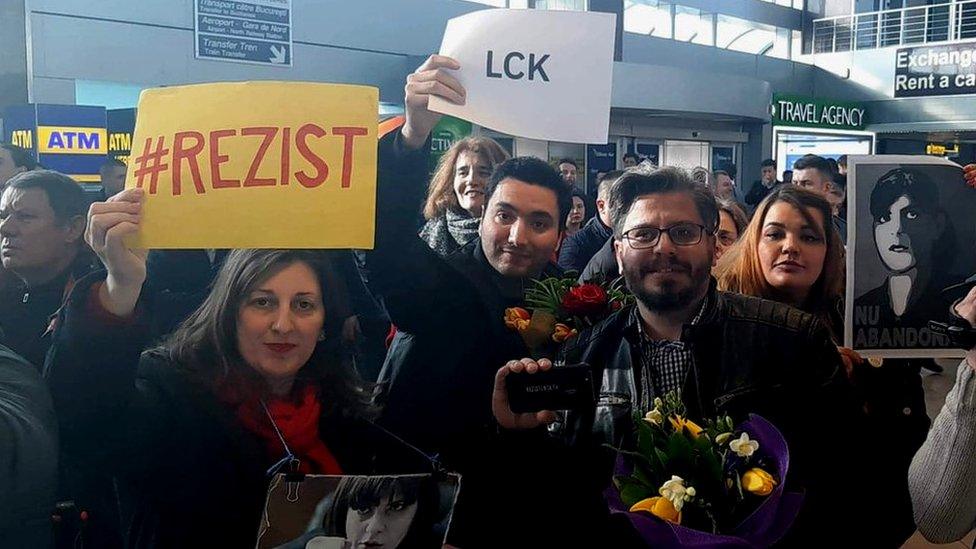
Supporters welcomed Ms Kovesi home with flowers and messages including her initials LCK
"Now, when she's running for the post of European Chief Prosecutor, people support her more than ever. She's our iron lady!" Angi from the Corruption Kills group said.
But her main rival for the post, Reims attorney general Jean-François Bohnert, has received the most votes from EU ambassadors, and the Romanian government lobbied hard to block Ms Kovesi's chances.
On the other hand, Ms Kovesi has the backing of the European Parliament's Civil Liberties and Budgetary Affairs committees.
Allow X content?
This article contains content provided by X. We ask for your permission before anything is loaded, as they may be using cookies and other technologies. You may want to read X’s cookie policy, external and privacy policy, external before accepting. To view this content choose ‘accept and continue’.

Now it is up to the European Council, in consultation with the heads of political groups in the European Parliament, to decide.
The successful candidate is due to start work in 2020.
Why does Europe need a chief prosecutor?
So far, 22 out of the EU's 28 states have agreed to join the European Public Prosecutor's Office. Hungary is among those that reject it as an infringement of their national sovereignty.
Its main purpose is to combat complex fraud cases.
How complex?
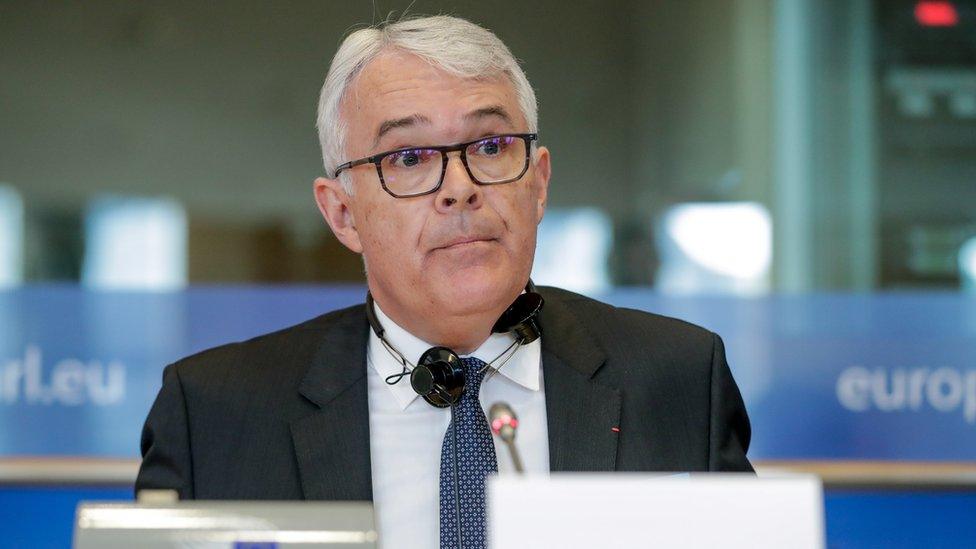
French attorney general Jean-François Bohnert has the support of EU ambassadors
Imagine a truck loaded with sunflower oil rumbling over a sturdy steel river bridge from one EU country to another.
Both are members of Schengen, the customs-free European Union trade zone, and the old border control buildings have broken windows, empty except for cobwebs.
There are no border police or customs officers in sight. The truck parks in a lay-by.
A company accountant fills out VAT refund forms in country A, because the oil has been "exported". VAT ought to be paid in country B, by those who sell it.
But later that day, the driver calmly drives his truck back without unloading it.
The oil finds its way on to supermarket shelves back in country A, tax-free.
It's part of everyday VAT fraud, which costs EU countries an estimated €50bn (£43bn;$56bn) a year. A US diplomat based in Hungary found discrepancies, external between imports and exports totalling $3.37bn in 2015 alone.
Investigating this is complex and requires mountains of translated documents and time-consuming work for police, customs and judiciary.
National customs offices are also sometimes "discouraged" by those in power.
The EU's anti-fraud office, Olaf, has a staff of only 100 and over half its requests for investigation are rejected by national prosecutors.
The new prosecutor's office will not only target suspect VAT transactions, but also the equally complex issue of public procurement tenders for EU money - to identify contracts going to business figures close to political parties.
And Ms Kovesi, who has already taken on the powerful in her home country, may be leading the charge.
- Published9 February 2017
